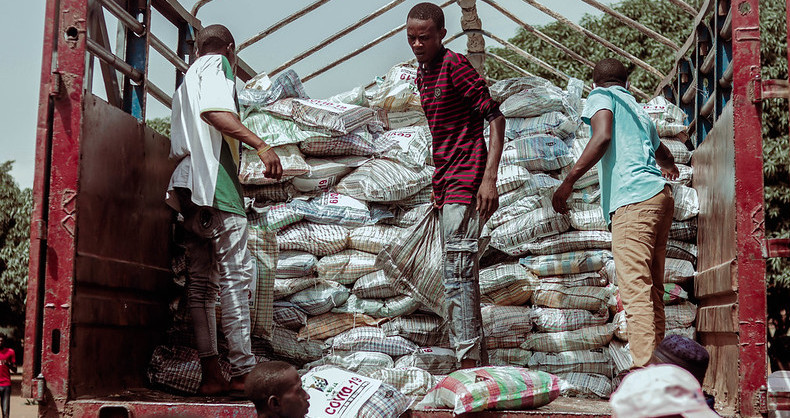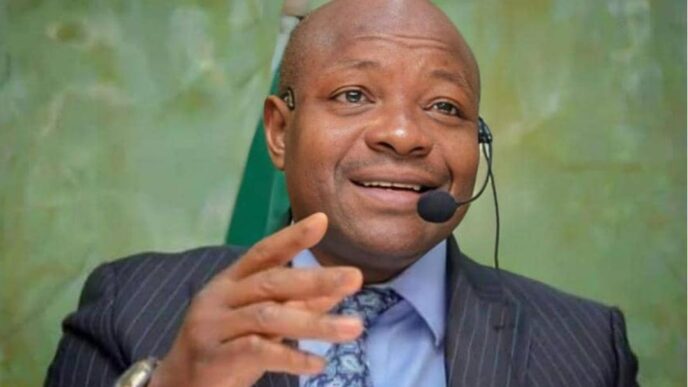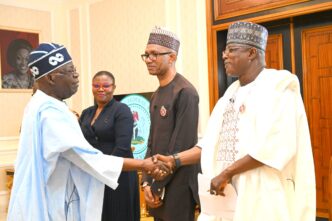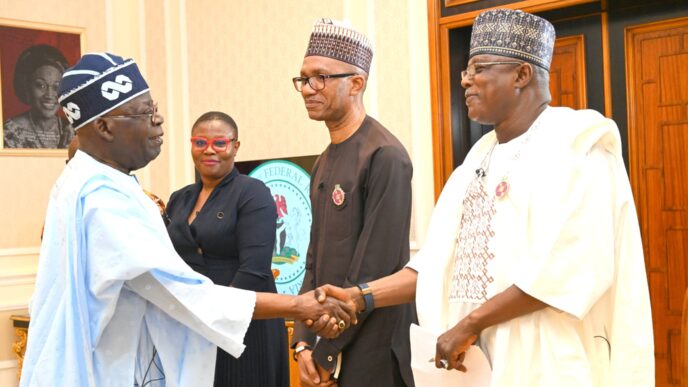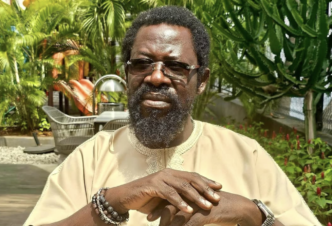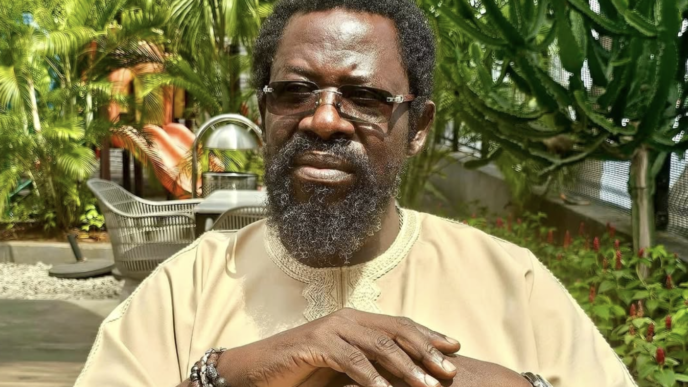The essence of government and governance anywhere in the world, at any point in time, is the provision of an enabling environment for the citizenry to be able to earn a legitimate, and decent living from their individual industries, so as to secure a “good” living condition. That is what all governments, across climes and ages do, or pretend to do, at least. What differs is their choice of strategy.
Some believe in providing a level playground for the citizenry, by providing social amenities that will complement and enhance the quality of factors of production. That will be, with a view to boosting productivity, others believe in acting benevolently, by giving handouts occasionally. In countries where welfarism, rather than capitalism, is their preferred socio-economic system, they institutionalised a system governed by a philosophy of “to each according to his need”, through which the government gets the citizens’ needs satisfied through the machinery of the government. Meanwhile, others choose capitalism that encourages every citizen to legitimately aspire to be what he wants to, and can, be through the reward of his industry. This system gives room for private accumulation and ownership of properties. We also have others (societies) which synchronise the two ideologies, giving birth to what is called a mixed economy.
Whichever one a country chooses is a function of the ideological leaning of the ruling elite. But by and large, it is all about ensuring “good life” for the citizenry. Nigeria is no exception. What differs, however, in what obtains in Nigeria, from those of other climes is the fixation on the use of palliative as an instrument of governance through which they purport that, good life can be guaranteed. That is why the Nigerian government subsidises consumption instead of production. What that has yielded over the years is the incubation of a culture of mendicancy, and rent-seeking among the populace. The worst of it is that, it is beginning to, virulently, affect those who hitherto wanted to work and create wealth, in order to earn a living. It is beginning to make sense, for them to join the growing colony of beggars that the system nurture.
Funds that ought to have been channelled into providing social amenities that would engender “ease of doing business,” for wealth creation, are being poured down the drain of unreal wealth creation — palliatives. Factors of production are not being made affordable and accessible to aspiring entrepreneurs. So, tell me, how would there be a reduction in the rate of unemployment in the country?
Advertisement
Several social intervention policies have, in the past, been formulated and implemented for the purpose of poverty eradication/alleviation. Some of them include: the “National Poverty Eradication Program” (NAPEP), “YOUWIN”, “Sure-P”, “N-Power”, “Conditional Cash Transfer” (CCT), “Tradermoni”, among others. They were all designed to eradicate poverty, but they all left Nigerians, poorer than they met them, while creating pockets of emergency billionaires among government officials, with no real-sector-involvement that creates values. At a stage, under the Buhari administration, the Federal Government ran out of cash to fund this model of poverty alleviation/eradication, and they resorted to printing money, like the legendary Late Idi Amin Of Uganda, calling it “Ways and Means,” and it badly hurts the value of the Naira, the effects of which the country is still battling to date. I did a piece titled, “With ‘Kao Kudi’ Philosophy, we now Spend More than we Earn”, published by this medium on July 28, 2022. In the article, I x-rayed how we spent more than we were earning, at the time. It was part of the government’s misplaced effort to fund the unreal political economy of palliatives. Meanwhile, the term palliative is used to describe the form of medical care that relieves symptoms without dealing with the cause of the condition. In the context in which Nigerian governments use it, it is a temporary relief package for those who suffer from some sort of socio-economic dislocation and are in need of assistance, until they’re back on their feet. But in actual sense, it relieves symptoms without addressing the cause. I think that is instructive enough for those who use their brains for any form of serious thinking at all.
Therefore, a combination of all of these, and poverty of ideas on the path of our leaders has rendered Nigerians multidimensionally poorer. While private individuals who engage in philanthropy could be excused for sharing palliatives, it should not be the major instrument of governance for those who have the responsibility to manage our common patrimony. .
The worst of it all is that, the elite have weaponised poverty, to continue to have that leash on the majority of the people as a means of self-perpetuation in power. It is so much so that people who ordinarily should have stood up to them, have now been rendered effeminate by the systemic pauperisation, for reasons that border on self-preservation by the elite.
Advertisement
So in the next foreseeable future, handing out palliatives (relief materials) to the people, would likely continue to be the order of the day, if the people are to keep body and soul together. And this would not come without a price. Nigerians are paying dearly for the Greek gift. When the legendary British writer, René Lodge Brabazon Raymond, with the pseudonym — James Hadley Chase wrote one of thrillers of novels, titled, “There’s always a Price Tag”, I do not think he had in mind the preference of the Nigerian political elite for palliative, rather than providing an enabling environment for people to be employed, as a panacea to poverty alleviation. It is a situation whereby, all the government needs to do would be to provide an environment conducive enough for businesses to thrive. If that is done, there would be massive employment in the real sector and people would be earning their living, not through government patronage, but productive activities that lead to wealth creation. That would be a win-win situation for the people, and a long term economic viability and sustainability of the Nigerian State. But instead, governance has been reduced to mere tokenism over the years. People are being given fish, rather than being taught how to fish and be given hooks.
That is the route the ruling elite had chosen to follow. And Nigerians have been paying dearly for it, with their lives most often. Earlier, in February this year, about half a dozen people lost their lives in a stampede as they struggled to buy (a purportedly subsidised) rice from the Nigerian Customs Service in the Yaba area of Lagos. Last week, no fewer than 35 people, mostly children lost their lives in Ibadan, as a prominent lady, reported to be an ex-wife of the Ooni of Ìfẹ́ in collaboration with a popular Ibadan broadcaster journalist and media entrepreneur, Oriyomi Hamzat organised a gathering of children to distribute palliatives in the spirit of the season — Christmas. But what did we see? Adults took over the place and ended up out-numbering the kids — the target beneficiaries, which led to the untimely death of dozens. The philanthropists, as we speak, have been remanded in the custody of the Nigerian Correctional Service by an Ibadan Magistrate Court. Before anyone could say “Compliments of the Season” a report of another incident, similar in nature trickled in, from Okija – a community at the outskirt of Onitsha, the commercial capital of the South East geopolitical zone. A public-spirited individual wanted to put smiles on the faces of some people as they prepare for the yuletide. On the same day, another case of philanthropy-gone-awry happened in Abuja. No fewer than ten people were fared dead.
In each of the cases, it was public-spirited individuals wanted to give back to the society. It is, what we refer to, in the local parlance, as “Giveaway” — giving to the needy. But it is disturbing to see that people whose situations do not look as bad as to be desperately in need of such gesture, judging by their looks, are usually the ones who dominate those venues, and in the ensuing melee, lives would be lost. It is born out of the fear of poverty, most of the time.
I refuse to blame, solely, the rush that characterised these occurrences on poverty, but instead partly on greed. A part of the blame also goes to our lack of crowd control culture, and sense of decorum in public places. Wherever there is a modicum of crowd control, the technique is always very poor. Worse still, the organisers in some cases concentrate their energies on the camera, rather than focusing on prevent such an avoidable disaster. Their attentions are majorly focused on the optics — contents for social media, at the detriment of the safety of those in attendance. This is not to condemn the philanthropic spirit and gesture of those who part with their hard-earned money to bring succour to the needy. But I believe they (we can, as a people) can do better, especially in the area of crowd management.
Advertisement
Having said that, the chronic greed among some Nigerians explains why people throw decorum to the wind at such venues. Otherwise, how does one explain the mad rush to early death, by adult, to a show organised for kids. In the case of the Ibadan show, one person, reportedly, brought as many as 19 kids. For heaven’s sake, how did such a person intend to manage 19 kids without stories that touch? This culture of greed is not limited to sharing of palliatives. Whenever a petrol tanker falls and spills its contents, some Nigerians, as they rush out to scoop fuel, become blind to every danger associated with the contents coming into contact with flames. Are we going to say that people who are out to scoop the contents of a fallen fuel tanker, do so without knowing or minding the consequence, by the time the flowing liquid comes into contact with any spark of flame?
I will also blame the government, and especially the political elite, for weaponising poverty against the masses (as an instrument of class preservation). They do so, craftily, by knowingly or unknowingly, allowing incompetent and dishonest people are allowed to man agencies that oversee critical policies that would create enabling business environments for there to be gainful employments — what would have been the surest path to defeating poverty. In the process, people become multidimensionally poorer, every passing day. People who have resolved to vote out bad government, therefore, becomes socio-economically weakened by the time election comes, when, “Stomach Infrastructure” is rolled out, as an opium that numbs the pain of misgovernance for no longer than 24 hours. It is done by way of vote-buying. That sways their electoral decision to vote for an alternative candidate as a punishment for misgovernance of about four years. That vicious cycle of “poverty-nurturing” irrigates the poverty mentality that leads to stampede anywhere palliative is being distributed in the country.
The question that bothers me silly is, “When is enough of these avoidable losses of lives going to be enough?” When would the government stop this disaster-laden approach to poverty alleviation, and start using the one that would endure, with little or no adverse effect?
It must be noted that an average Nigerian is not lazy, contrary to the “lazy youths” label emblazoned on Nigerian youths by General Muhammadu Buhari during his tenure. A Nigerian is ready to work, to earn a decent living, but the chronic failure of the ruling class to provide that enabling environment for such, makes him look like a lazy man. It is also my belief that, Nigerians are the easiest to govern, considering the fact that, if you give them an opportunity, they’re ready to work, as they cherish their dignity as humans, more than anything else in this world. This is evident in the number of people who turn out, whenever there is an advertisement for job vacancy. Look at the number of them who struggle to immigrate to countries where they’d get gainfully employed. It is a pointer to the fact that they’re not lazy people, as they’re aware that there is no free meal in Freetown, Canada, the US, the UK, Australia, South Africa, UAE, among other popular destinations across the world where they normally target. It is just that, the political elite with their “poverty of philosophy” (apologies to Karl Marx), fail to see the domino effects of creating employment in the real sector as a panacea for poverty.
Advertisement
For ages now, we’ve been trying, to fight poverty with handouts, yet there is absolutely, nothing to show for it. Despite that, we’ve refused to have a review with a view to changing the approach. But, all I know is that, Nigeria cannot continue to lose human lives at this rate over the ineptitude of those we have had the misfortune of having as leaders. It’s got to stop. There has to be a change of approach. We can’t be thinking that, using palliatives, will steer our country from poverty to prosperity. Enough should be enough.
I wish you, dear readers, a Merry Christmas, and a Blissful and Prosperous New Year in advance!
Advertisement
Abubakar writes from Ilorin, Kwara state. He can be reached via 08051388285 or [email protected]
Advertisement
Views expressed by contributors are strictly personal and not of TheCable.

